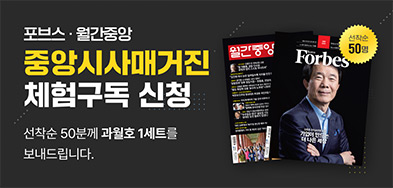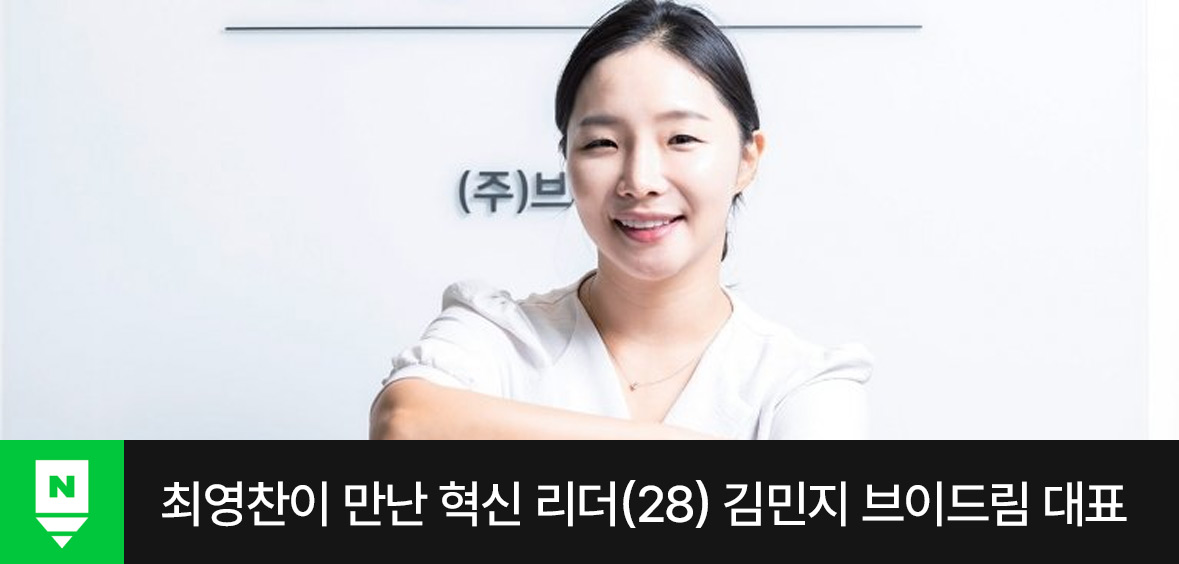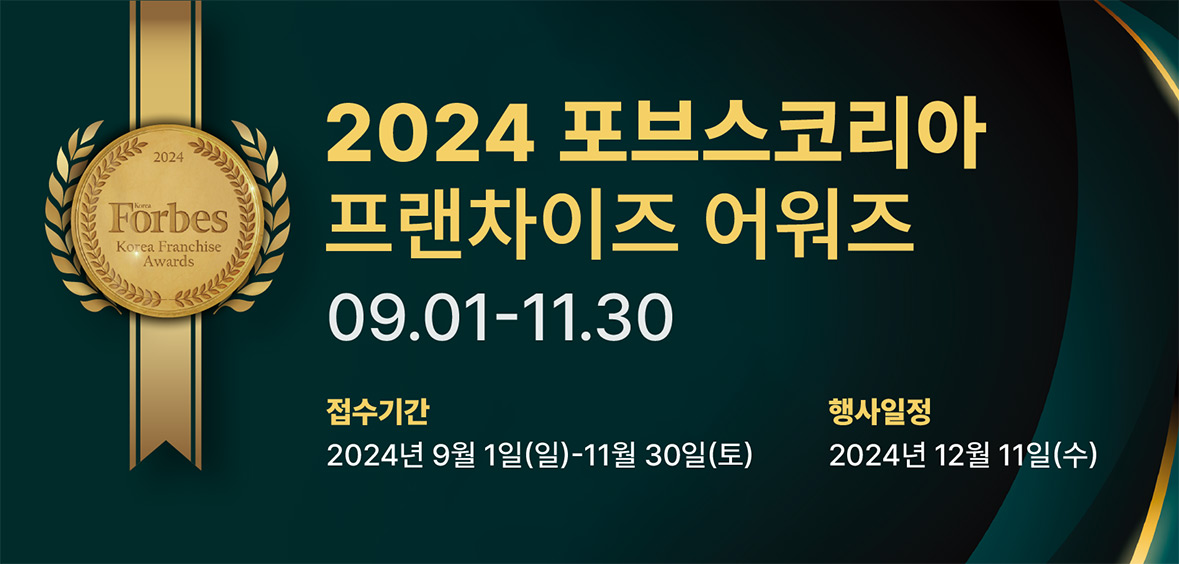In a culture with high pressure to achieve, private equity investor James Rhee left a fancy firm and private jets to become the CEO of a business that lost money for 22 years. And for seven years, he led the company's revitalization. Now, he continues his mission to redefine business success by combining kindness and math to achieve long-term growth.

▎James Rhee is a lawyer, venture capitalist, and serial entrepreneur. He currently runs the FirePine Group, and teaches Red Helicopter Operations as a senior lecturer at Duke University Law School and MIT Sloan. |
|
When James Rhee (53), a private equity investor, introduced himself as the new CEO of Ashely Stewart in 2013, everyone thought he was making a serious career mistake. Why would he leave his financially successful life, where he earned respect, reputation, and wealth, for a failing clothing brand for plus-sized women of color? Rhee agreed he was an unlikely leader. He had no experience as a CEO, in the fashion industry, or working with the targeted demographic. Choosing to lead Ashely Stewart meant stepping away from his family, social life, and identity. What the world didn’t know at the time was that Rhee was onto something bigger than just saving Ashely Stewart. He was on a mission to challenge the business world to redefine how we measure performance and prove that investing in kindness, culture, people, and math is the true recipe for lasting success.From the beginning, Rhee saw Ashley Stewart as more than just a clothing brand and knew this was the right decision to make as an investor, connecting the tangible assets, or the finances, with intangible assets, like how the company made people feel. “It’s the assets that aren’t in the spreadsheet. [For instance] Ashley Stewart gave women confidence and safety. I saw how the store managers welcomed her customers with wholesomeness - how mothers brought their sons to the store, knowing it was one of the safest places to bring their young children. It’s real humanity.”While Wall Street focused on Ashely Stewart’s negative balance sheet after closing hundreds of stores, declining sales, mounting debt, and operational losses, Rhee focused on the company's fiercely loyal customers, resilient store managers, and caring employees. “I’m an investor, after all. I want to invest in things that will last and be meaningful in the long run, and I saw that in Ashley Stewart,” said Rhee.
He knew that part of the challenge was that the company didn’t have the support, financial knowledge, and connections that other privileged communities would have. It was a story he was familiar with, being a Korean-American watching his immigrant parents struggle to live and raise the family as a minority in New York. By sharing the knowledge, connections, and learnings he gained over decades in private equity and during his time at Harvard, he was motivated to change the narrative of those who “can” and “cannot.”“[Walking into Ashley Stewart] reminded me of my immigrant experience or how I grew up. The office had no Wi-Fi. And they didn’t have the best vendors,” said Rhee. “The first thing I told the team was that I may not look like you, but I want to help. I saw my mother in these strong, resilient women, and I wanted them to know their courage is seen by the world. And I want us to practice kindness and hold each other accountable. It was the most important message that helped set the foundation for us.”After the second bankruptcy in 2014, Ashley Stewart transformed into a thriving business, selling at a valuation well into the nine figures. A success that was possible, Rhee says, because they led with both kindness and math. Rhee says people mistake “kindness is soft, and math is firm,” but argues that the combination creates a culture of inclusion and accountability. He made many key decisions to improve business operations, safety, and security to demonstrate kindness. He hired armed guards to protect staff and make the office safe, and he eliminated outdated manuals to improve communication. To illustrate the importance of math, he also made many tough decisions to let go of bad systems, people, and toxic behaviors. For example, he deeply discounted clothes that weren’t selling to reduce inventory costs and fired employees who mismanaged finances.
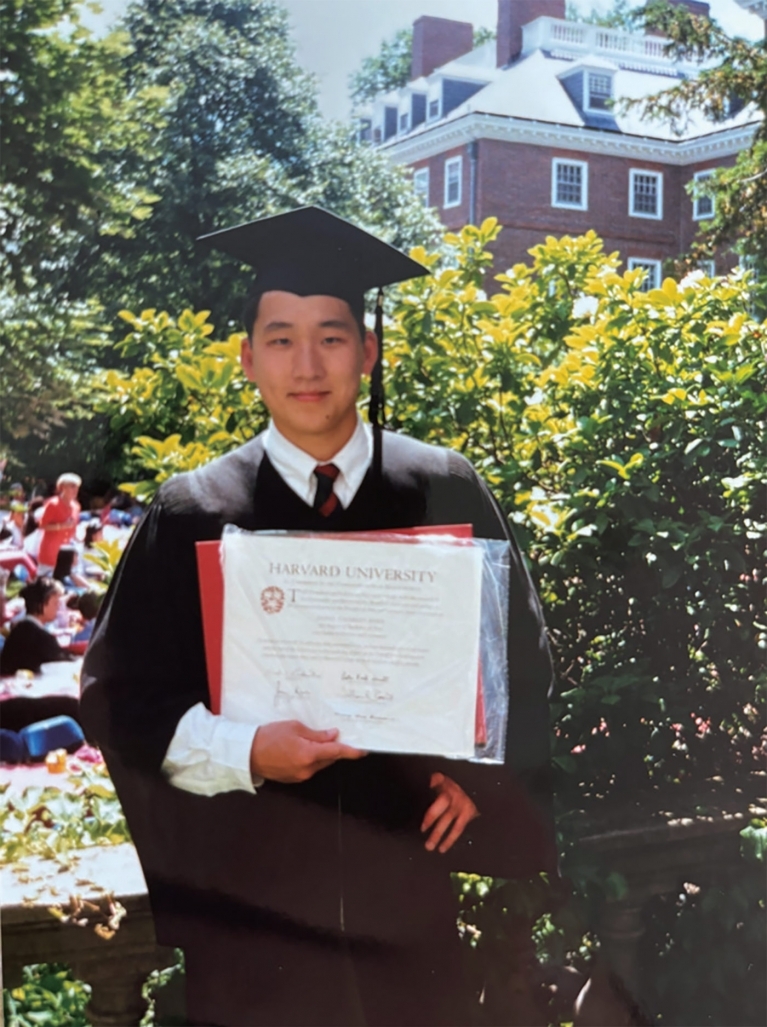
▎James Rhee holding his Harvard undergraduate diploma in June 1993. After graduating from Harvard, he became a high school teacher, which was not the typical career path for a Harvard graduate. After graduating from Harvard Law School, he took a quant course at MIT instead of becoming a lawyer. / Photo: JAMES RHEE |
|
“Good leadership is connecting a purpose-driven vision with the money and details,” said Rhee. “As a leader, you have to be a very good teacher so that they understand your purpose and vision and are more comfortable when things change. This is how I give them agency and create space that allows them to sing their own songs in a way that creates harmony. Your job is to ensure that all the voices sound good together. This is a chorus.”Even though he was confident in turning the tables around, he had many “what in the world am I doing?” moments that required courage to push through. In addition to leaving his financially comfortable life, he was stressed at home knowing his father was on his deathbed with Parkinson’s disease and that his family was many hours away, with his daughter also having a serious injury.“Private equity was my identity, right? I was doing it in Boston for 15 years. But as I was playing golf with all these decision makers who are white and learned about Ashley Stewart, I was thinking how two things are dying in New Jersey slowly - my father and Ashley Stewart,” said Rhee.It didn’t help in the first few months; he had more doubters who didn’t expect his business strategy to work. It wasn’t easy, and he often felt alone. Looking back on his journey at Ashley Stewart, Rhee often drew motivation from reflecting on his parents' kindness and perseverance. His father often took on patients who couldn’t pay their bills on time, and his mother cared for the local communities even though she didn’t speak good English. “How can I instill that Jeong is key to business?” he asked himself during those sleepless nights.
For Rhee, this value is encapsulated in a core childhood memory and still inspires his professional approach today. When Rhee was five, he unexpectedly received a red helicopter toy from his friend’s father at school. At first, he was excited to have a toy, but his parents were alarmed when they found out. Given their financial situation, they first thought Rhee stole the toy and scolded him. Rhee explained it was a gift, but his parents were still worried, knowing he was singled out, and they thought this was a sign he wasn’t adapting to American culture well.The truth finally came out, and it surprised everyone. Rhee’s friend’s father gave Rhee the toy to thank him for sharing the Korean lunchboxes with his son. It turns out his friend didn’t have lunch because his mother had just passed away, and his father hadn’t had time to worry about packing lunch for all the children. When Rhee’s parents discovered this, they were overwhelmed with Rhee’s authenticity and kindness. Five-year-old Rhee thought, "Whatever I did here, I want to repeat it.” Older Rhee now realizes how important this “red helicopter” moment is and how his work at Ashley Stewart and beyond is taking this value in a scalable way.In 2020, after seven transformative years, Rhee left Ashley Stewart. His mother had recently died following his father’s death, and he was burned out from work. He wanted a break. But the creative and teacher voice in him stirred him up. He used his break to recharge, reflect, write, and create.
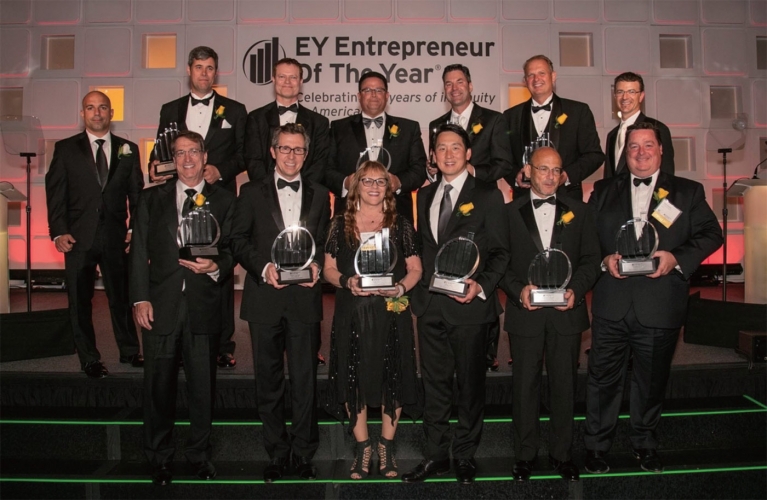
▎James Rhee at the EY Entrepreneur of the Year Awards Ceremony in New Jersey in 2016. / Photo: JAMES RHEE |
|
In 2024, he shared his next stage of work by publishing his book, red helicopter, with stories and lessons from his time at Ashley Stewart and how “red helicopter” moments of kindness can be the secret to everyone’s business and leadership success. The book became an instant bestseller and is anticipated to come out in several languages, including Korean, in Fall 2024. He also divides his time as an adjunct professor, teaching weekly business classes at MIT, Duke Law School, and Howard University because he believes investing in the next generation is one of the most important missions as a leader.“Whenever I mentor younger people, I love helping them see what they can’t know about themselves. That’s why I create and want to help others make more. In retrospect, I also wonder if this was why it was hard being a Korean man. There weren’t that many role models growing up,” said Rhee. “Creativity usually isn’t celebrated in an immigrant family and Korean American household when I grew up. Things are changing now where being Korean is cool, and I’m excited to unleash my creative voice more and encourage others to be creative too.” It’s the reason why he talks about the importance of creativity as a value in leadership accompanied by kindness and math in his lectures.Rhee also emphasizes teaching a systems mindset that invests in long-term thinking. He shared how he actionizes this, thinking of life as a Go-player. In Go, you often have to play thinking of the next twenty moves ahead, anticipating your opponent’s moves. Often in business we are so caught up thinking about our immediate needs that we don’t invest time in changing systems that drive long-term goals. He urges us to apply this mindset to our own professional development, as Rhee did when he made the move to Ashley Stewart. Or when he became a high school teacher after graduating from Harvard undergrad and pursuing private equity after receiving a law degree from Harvard.
“I like to give away what I learned as fast as possible so others can succeed. That’s why, as I live, I want to build systems that will help more people in the long run and not just in the immediate return. This means sometimes you need to be okay with losing to win the war in the long run,” said RheeRevenue, user growth, and client satisfaction may be crucial KPIs for a leader, but Rhee reminds us that good business leaders shouldn’t stop there. His story inspires us to pause and rethink how we embed goodwill into the business world, not forgetting the importance of perhaps the most important KPI of all: kindness.
Monica H. Kang, Founder and CEO of InnovatorsBox and Author of Rethink Creativity, is a leadership coach transforming today’s workforce with innovation. She helps companies worldwide rethink culture, leadership, and team development by making creativity practical and relatable regardless of industry or job title. Before InnovatorsBox, Monica was a nuclear nonproliferation policy expert. She holds an M.A. from SAIS Johns Hopkins University in Strategic Studies and International Economics and a B.A. from Boston University.










